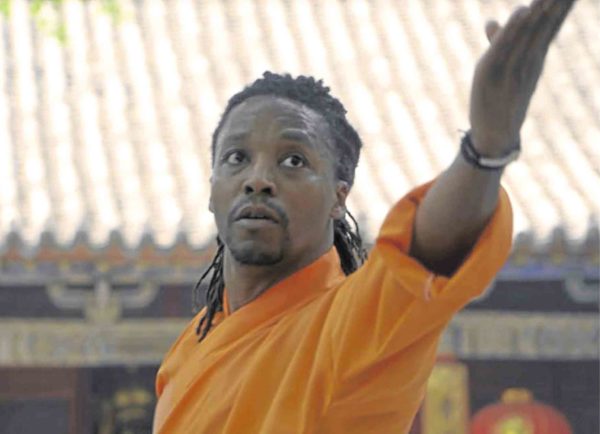American rapper Lupe Fiasco is learning about Asia through his production company in Hong Kong, Studio SV, and a new docuseries, “Beat N Path.” Choosing China for the location of his new project was an easy choice, according to the hip-hop artist.
“In my adult life, it was like, ‘I want to go to China—I want to visit the people.’ So that’s the reason, personally,” he told the Inquirer in a phone interview.
“Studio SV … is me and my business partner and producer Bonnie Chan Woo,” elaborated Fiasco, whose real name is Wasalu Muhammad Jaco. “It’s a company [for] digital content, TV and film production. ‘Beat N Path’ is our first production.” (It will air locally on Kix, starting March 8, 9 p.m.)
The 2008 Grammy winner for best urban/alternative performance for the song “Daydreamin’,” Fiasco said that he hopes that his company becomes a top content provider in Asia: “A lot of content is shifting from traditional television so we are focusing on social media, film and just any avenue that we can put ourselves in.”
Excerpts from the chat:
How would you describe your docuseries’ development? It was borne out of me going back and forth in Asia, thinking what I can teach you and also learn from Asian culture. And one of the things I did as a child and up to my teenage years was martial arts. My father was a martial arts master [who] trained hundreds of students all over Chicago. He always told us that if he had the opportunity, he would go back and learn at the source (Asia). So that became our focus. [Bonnie and I] talked about the idea of putting something together … like, “What we can do here is experience different things and try to go to different masters and learn the different arts”—and we did it and put it all on camera.
What made doing the show in China easy for your team? It was very easy to shoot there. The people, the masters and the different schools were very willing to kinda teach and show us foreigners their art.
What didn’t make it in the final edit? The first season is just three episodes but there’s a a lot of information, entertainment and emotions … We shot a lot of stuff, and there were many things that [weren’t included in] the show, which was very painful for me (laughs).
What interesting things are you learning about Asian cultures? One thing I’ve learned is how deep, rich and overlapping they are. When you feel you’ve got one thing figured out, you learn that it’s really just the entry point to 15 other kinds of cultures.
In China, traveling through those places, you see the vastness, the richness of it. I don’t think anybody can figure out Asia. I think it’s … meant to be an everlasting kind of discovery, not only of the people and the culture, but also about yourself and how it affects you.
How would you describe the show biz industry when you started, and now? I started right before the internet. I got my first record out, I think in 2000, and there was no social media whatsoever.
Now, people may be interested in the music content but they also want to know what your personal life is [like] … what you are doing, what you are eating. As an artist, you should be very honest with yourself, about how you want to be positioned in this new era.
